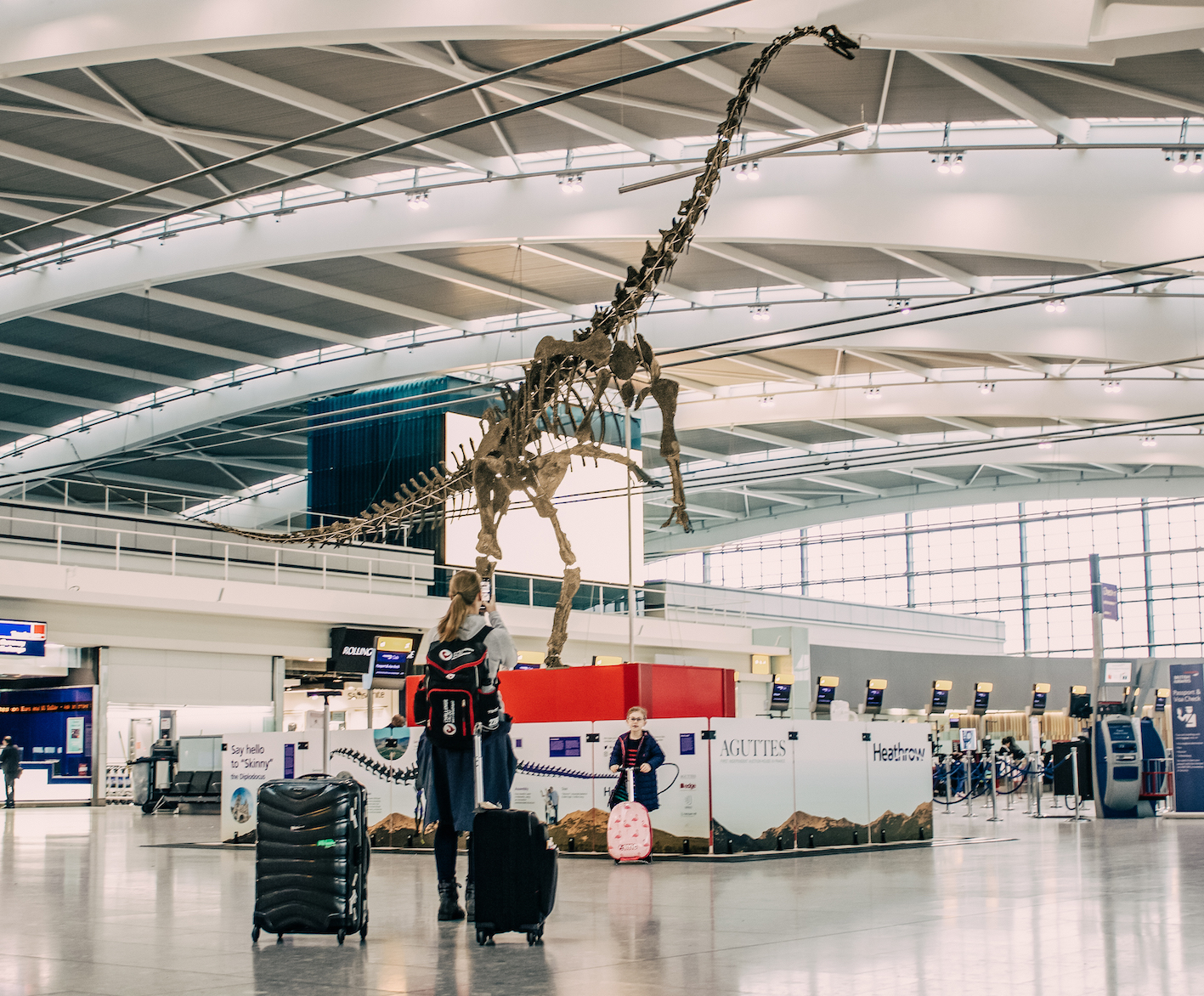
Don’t be alarmed by the 20-ton dinosaur skeleton looming overhead as you wait for your next flight at Heathrow. That’s “Skinny,” a cousin of the diplodocus who scientists unearthed in Wyoming in 2012.
The 155 million-year-old specimen will be on view at the London airport’s Terminal 5 until the end of May before heading to the French auction house Aguttes in Paris this June, with an estimated price tag of £2 million ($2.6 million). But before that, some one million travelers will be able to gawk at the incredible creature that is rarely seen outside of a museum context.
The Heathrow skeleton is especially remarkable because you can see an imprint of the animal’s skin on parts of its bones. Studies suggest that the 43-foot-long dinosaur belongs to a previously unknown vegetarian species. It is mounted on stainless steel support structures that allows the skeleton’s position to be moved.
Increasingly, collectors are beginning to incorporate natural history into their art collections. The market for prehistoric creatures has been steadily growing in recent decades, ever since the record-breaking sale of a 40-foot-long Tyrannosaurus Rex named Sue sold at Sotheby’s in 1997 for a whopping $8.4 million.
“Their sheer size awes people, they are immense and that is part of their fascination for collectors,” says Eric Mickeler, a specialist in natural history and an advisor to Aguttes. “They are powerful symbols which act as memento mori and remind us of the outcome of all species over the ages.”
Aguttes seems to be taking the marketing for jurassic creatures a step further by installing the monumental skeletons in public spaces. Last year, it installed a dinosaur skeleton in the Eiffel Tower before holding its sale at the base of the French monument. That dinosaur, an unknown species, sold for €2 million ($2.3 million).